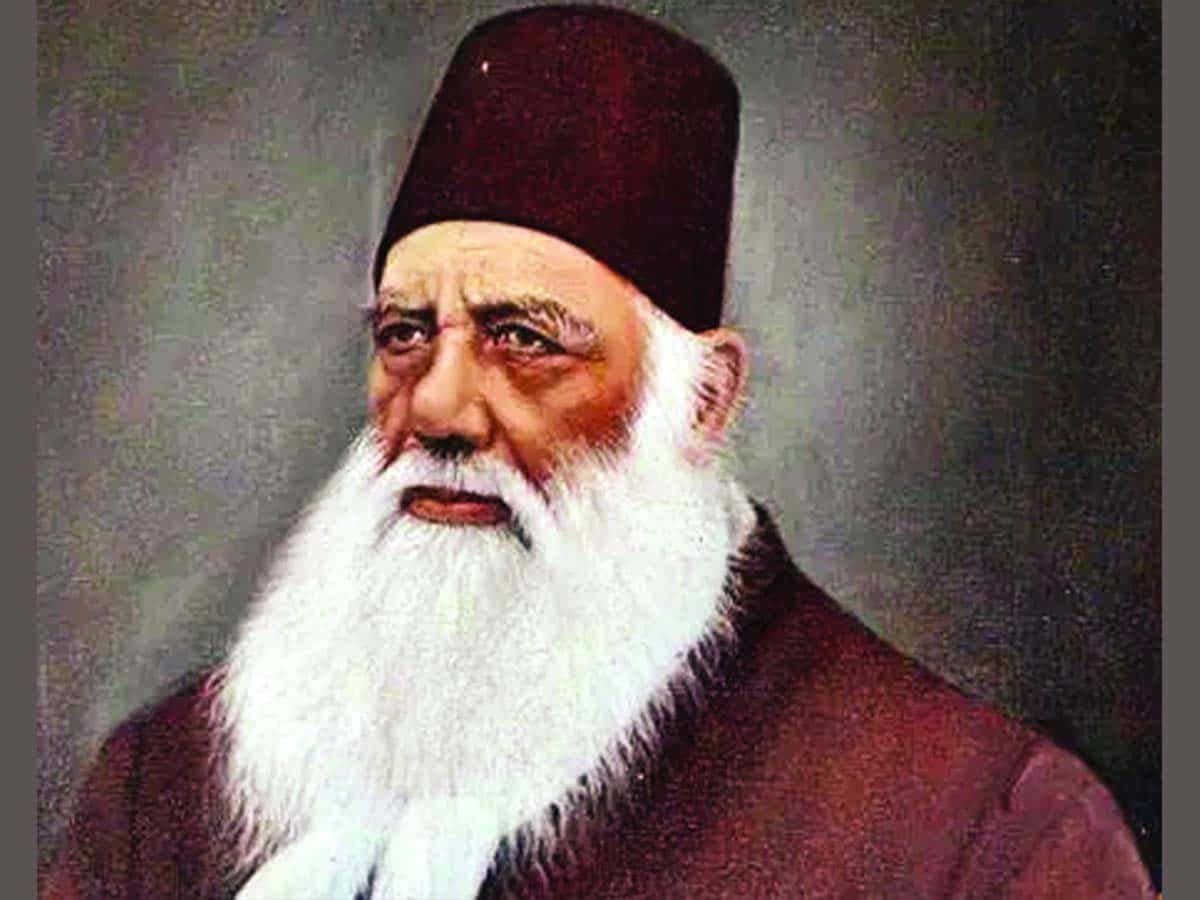Aligarh: Very few people in history have triumphed in driving out blind orthodoxy of people—making them embrace enlightened thoughts and attitudes like Sir Syed Ahmad Khan.
Therefore, to pay homage to the great Aligarh Muslim University (AMU) founder and his life-long journey; dignitaries, members of University community from across the globe, faculty members and students joined the online Sir Syed Day celebrations.
Delivering the commemoration address, the Chief Guest, Tirath Singh Thakur, former Chief Justice of India (CJI) said: “Sir Syed’s vision of a civil society, his sustained efforts for creating pragmatic awareness about what ailed Indians at that point of time, his secular vocabulary and his well thought model of indigenous modernism in contrast to colonial modernism get his relevance convincingly established in the post-modern world.”
He also said that at a time when countries are in a race of possessing nuclear weapons that can potentially kill millions and jeopardize the natural environment and lives of future generations through the long-term catastrophic effects; Sir Syed’s message of peaceful co-existence is more relevant today than ever before,” he stressed.
Former CJI emphasized that the fact that AMU brings positive stories of diversity and inclusion to the forefront to make this world a better place was also acknowledged by the Prime Minister, Shri Narendra Modi who called AMU a ‘Mini India’.
He said: “This day is about self-discovery, introspection and re-dedications to the values India stands for. It is gratifying to learn that Sir Syed’s living memory, the institution he established continues to live up to his expectations and I take this opportunity to congratulate the Vice Chancellor, faculty members, students and alumni for their remarkable work.”
Dr Qaidjoher Ezzuddin, Chairman, Saifee Hospital Trust and Saifee Burhani Upliftment Trust, emphasized that according to the Islamic tradition, the first thing God created was the pen and then he commanded it to write the fate of all things up to eternity.
He added, “The pen represents intellect and the sum total of the knowledge God gave it and we must embrace the power of writing and knowledge.”
Dr Qaidjoher urged AMU students to write their own destiny with innovative ideas and thoughts.
The AMU Treasurer, Prof (Hakim) Syed Zillur Rahman presented the Chief Guest and the Guest of Honour with the mementoes in virtual mode.
In the welcome address, AMU Vice Chancellor, Professor Tariq Mansoor said: “It will be difficult to sum up Sir Syed, a multi-faceted personality whose work changed the course of history during the second half of the 19th century. The era was marked by several upheavals. The mutiny was foiled, medieval feudal order had collapsed and with this, the economic system was in shambles. Amidst this, Sir Syed, a man of extraordinary talent, comprehensive knowledge, clear vision and farsightedness steered the country men.”
“In the last few years, a record number of new courses have started including two new B. Tech courses in Food Technology and Artificial Intelligence, Master programmes in Data Science, Cyber Security and Digital Forensics. We have also introduced BSc Nursing, BSc Paramedical Sciences, DM (Cardiology) MD in four new subjects of Unani Medicine, MA (Strategic Studies) and M.Ch (Neurosurgery). Meanwhile, the number of MBBS seats will soon be increased to 200 from 150”, said the Vice Chancellor.
The Chief Guest, former CJI Shri Tirath Singh honoured illustrious British historian and Professor of History of South Asia at the University of London, Dr Francis Christopher Rowland Robinson and acclaimed Indian theorist, Prof Gopi Chand Narang with the Sir Syed Excellence Awards in the international and the national categories respectively.
Prof Francis Robinson received a citation and a cash prize of Rs two lakh, while Prof Gopi Chand Narang was given a cash prize of Rs one lakh with the citation.
“I have studied in the context of UP Muslims: the emergence of Muslim politics; the widespread adoption of print from the nineteenth century and its major impact on religion and politics; aspects of religious change, among them the emergence of forms of ‘protestant’ Islam; religious change and the development of forms of modernity, for instance, individualism; and the world of the Ulama,” he informed.
Prof Gopi Chand Narang said, “Sir Syed, born to nobility in a direful Delhi coming to terms with Mughal decline and British ascendancy, grew up under the eclectic influence of the city’s cultural ferment, but chose to devout his life for bringing reform through education.”
“Sir Syed was keen to have Indians wrap their heads around modern science and visits to Oxford and Cambridge on a trip to England in 1869-70 left him so struck that he wanted an institution set up back home on the same model”, said Prof Narang.
Prof Qamrul Hasan Ansari, distinguished mathematician, Department of Mathematics, AMU was bestowed with the ‘Outstanding Researchers Award’ 2021 in Sciences category.
Dr Mohammad Zain Khan, Assistant Professor, Department of Chemistry, and Dr Mohammad Tariq, Assistant Professor,
Department of Electrical Engineering, shared the ‘Young Researchers Award’ in the Sciences’ category.
Dr Mohd Arshad Bari, Assistant Professor, Department of Physical Education, was given the ‘Young Researchers Award’ in the field of Humanities and Social Sciences.
AMU BALLB student, Raza Haider Zaidi won the first prize in the All India Essay Writing Competition on ‘Sir Syed as a Protagonist of Interfaith Dialogue’ of the Public Relations Office, AMU. He won a cash prize of Rs 25,000 with the award.
Two books were also released on the occasion. They were ‘A History of Aligarh Muslim University (1920-2020)-A Centenary Publication edited by Prof Asim Siddiqui, Dr Rahat Abrar and Dr Faiza Abbasi and The Allure of Aligarh: A Poetic Journey into the University City by Huma Khalil.

